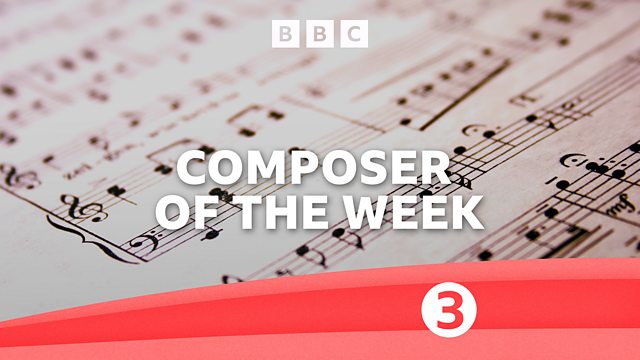
Final Years and Late Masterpieces
Donald Macleod focuses on Britten's final masterpieces, written in declining health, including the War Requiem and Phaedra.
His health in decline, Britten produces his final masterpieces.
From relatively humdrum origins in the coastal fishing port of Lowestoft, Benjamin Britten rose to become the pre-eminent British composer of his day, celebrated not just in his native land, but internationally. Although he initially saw himself as an outsider to the British musical establishment, he would rapidly transform music-making in Britain; introducing new sounds, and insisting on the highest standards of performance. By the time of his death in 1976, in the arms of his long-term companion Peter Pears, Britten was celebrated as a composer of operas, string quartets and song cycles, and of a War Requiem that touched the hearts of millions of listeners around the world.
By the late 1950s and the early 1960s Britten's pacifism was no longer a particularly eccentric position to hold. A supporter of the Peace Movement, Britten was delighted to be commissioned to write a piece to mark the opening of the rebuilt Coventry Cathedral. That piece, the War Requiem, would become one of the fastest selling classical records of all time! One inspiration throughout the 1960s was cellist Mstislav Rostropovich. Despite linguistic differences (they spoke in 'Aldeburgh Deutsch') they got on famously well, and among other things Britten composed a Cello Symphony in Rostropovich's honour.
Dogged by increasingly frail health, Britten struggled to complete his final opera, Death in Venice. And yet, despite increasingly insistent intimations of his own mortality, his last years witnessed an extraordinary burst of creativity, including a chamber cantata, Phaedra.
Donald concludes this week's look at the life and music of Benjamin Britten with the last two movements of one of the last pieces he completed: his third string quartet.
Last on
More episodes
Previous
Next
You are at the last episode
Music Played
-
![]()
Benjamin Britten
Recitative and Passacaglia - Third Quartet
Ensemble: Belcea Quartet.- EMI: 7243 557968.
-
![]()
Britten Quartet
A Midsummer Night's Dream
Singer: Alfred Deller. Orchestra: London Symphony Orchestra. Conductor: Benjamin Britten.- London: 425663-2.
- 6.
-
![]()
Benjamin Britten
Phaedra
Orchestra: English Chamber Orchestra. Conductor: Steuart Bedford.- London:425666-2.
- 1-3.
-
![]()
Benjamin Britten
Cello Symphony op 68
Performer: Mstislav Rostropovich. Composer: Benjamin Britten. Orchestra: English Chamber Orchestra.- London: 452 100-2.
-
![]()
Benjamin Britten
War Requiem - Agnus Dei and Let us Sleep
Singer: Peter Pears. Singer: Galina Pavlovna Vishnevskaya.- Decca: 475 7511.
- 1.
-
![]()
Benjamin Britten
Songs from the Chinese
Singer: Philip Langridge. Performer: Stephen Marchionda.- Chandos: Chan 10305.
- 15.
Broadcast
- Fri 22 Nov 2013 12:00����ý Radio 3
Beethoven Unleashed – the box set
What was really wrong with Beethoven?
Composers A to Z
Who knew? Five eye-opening stories from Composer of the Week
Five reasons why we love Parry's Jerusalem
What is the strange power of Jerusalem which makes strong men weep?
A man out of time – why Parry's music and ideas were at odds with his image...
The composer of Jerusalem was very far from the conservative figure his image suggests.
Composer Help Page
Find resources and contacts for composers from within the classical music industry.





